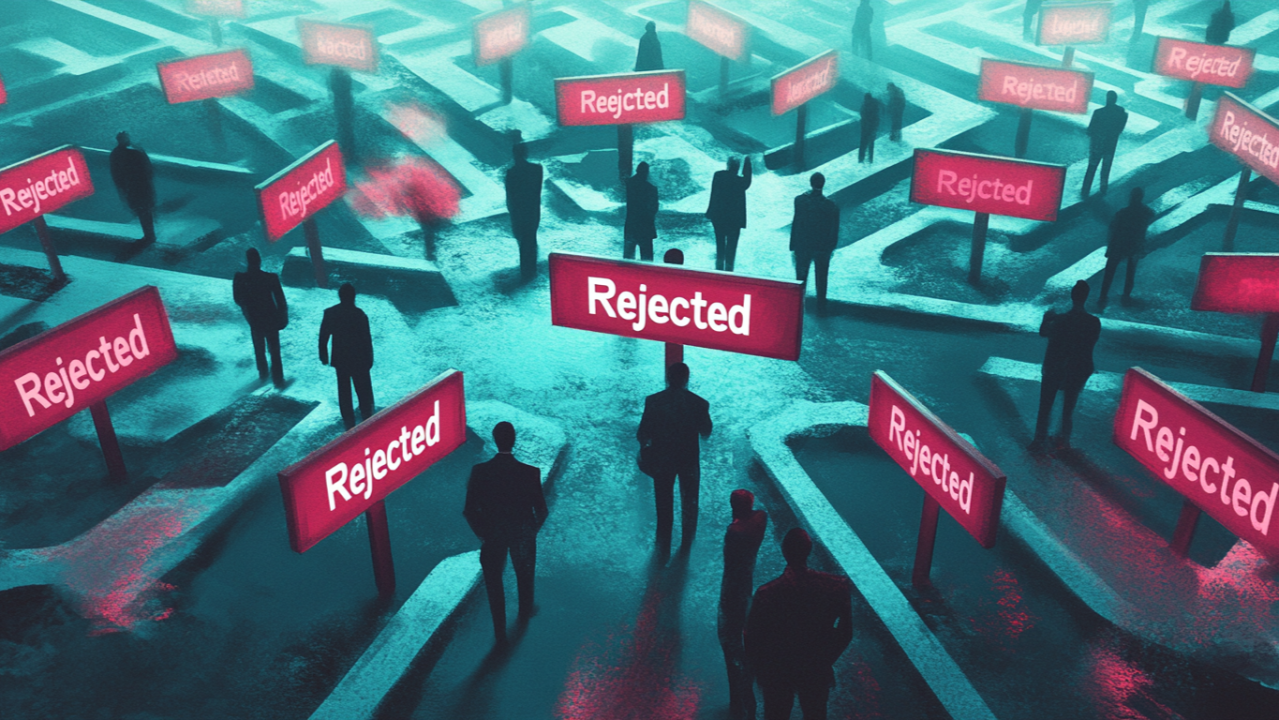The Most Rejected Generation: It’s Not Just Gen Z—It’s All of Us
When I read the headline “We Are the Most Rejected Generation” in the New York Times, my jaw dropped. I thought: what generation? Who are we talking about?
As I read on, I realized the focus was Gen Z—today’s young adults navigating elite college applications, competitive student clubs, unpaid internships, and a job market where 400 applications often lead to zero interviews. The author, David Brooks, describes a generation raised in a system of “competitive exclusion,” conditioned to specialize early and succeed in a game that's nearly impossible to win.
But this isn’t just Gen Z’s story. This is Gen X, Millennials, and beyond. We are all part of the Rejection Generation now.
I wrote recently about the white collar recession—how college-educated professionals, especially knowledge workers, are facing massive disruption from AI, shifting business models, and reduced demand. That piece explored how qualified professionals are being squeezed out of the job market, especially mid-career.
This latest New York Times article makes it clear: the rejection isn't isolated. It’s systemic.
The symptoms are everywhere, beyond Gen Z:
Highly educated knowledge workers who are locked out of jobs.
Middle-aged professionals in marketing and advertising displaced by AI and new business models.
Professionals in their 30s, 40s, and 50s ghosted, ignored, and rejected in today’s hiring pipelines.
I see it in my clients. I feel it in myself. I hear it in conversations across industries. We’ve normalized a rat race of impossibility, and it’s breaking us.
This isn't just about hiring trends or college admissions—it’s a crisis of identity.
Rejection chips away at our core human needs: belonging, agency, confidence and competence.
When we’re constantly told “no,” we start to question who we are and what we’re worth.
Career development hasn’t caught up. Coaches still hand out personality tests and resume tips like they’re magic wands. But the system itself is malfunctioning. People aren't broken—our career pipelines are.
What’s happening in the job market parallels what I’ve seen with people who are hybrid professionals—people with multiple identities, nonlinear paths, and deep expertise that doesn’t fit neatly into a job or job title. They’ve always struggled to be seen, understood, and valued. Now, everyone’s struggling. The Rejection Generation is growing.
So what do we do?
We need to start by shifting the cultural narrative—not just around career paths, but around what’s actually happening in the workforce.
The direness of this moment is being masked, minimized, or swept aside. Let’s be real, it’s getting harder and harder to get hired, no matter how credentialed, experienced, or talented you are.
There’s a reason time between jobs is stretching. It’s not laziness or lack of skill—it’s that the system is flooded, broken, and rigged in new, invisible ways.
We need to stop worshipping a meritocracy that no longer exists. The idea that the right degree or resume will get you in the door? That ship has sailed.
Honestly, I don’t know what works anymore. It’s part luck, part network, part timing, and part preparation—but mostly, it’s surviving the Wild West of job search uncertainty. People are grinding through year-long searches for entry and mid-level roles, not executive jobs—any jobs. In the face of that, coaching people how to be more resilient when faced with mountains of rejection isn't a long term solution. The workforce system itself needs a redesign.
The paradox here is that as job uncertainty and rejection grows, so does our craving for stability. We’re facing a collision between people’s desire for security and a system that offers less and less of it.
Rejection isn’t just a workforce issue—it’s a story of inequality, a shortage of high-quality jobs, and a society that’s failing its most educated workers.
We need new models—of business, of hiring, of working—that support multidimensional people, not just specialists. A structure that allows us to earn a living and be who we are. We should be able to explore and evolve our vocation, follow multiple passions, and be a novice that learns on the job instead of being punished for these things.
Let's stop acting like this isn’t happening. Because it is the Hunger Games out there—and we’re not calling it out.
This isn’t a new normal. It’s a career crisis we’ve failed to name.
We are more than our rejections. We are more than our resumes. We are more than our job titles.
The question is: how do we reinvent our workforce systems to reflect that?

